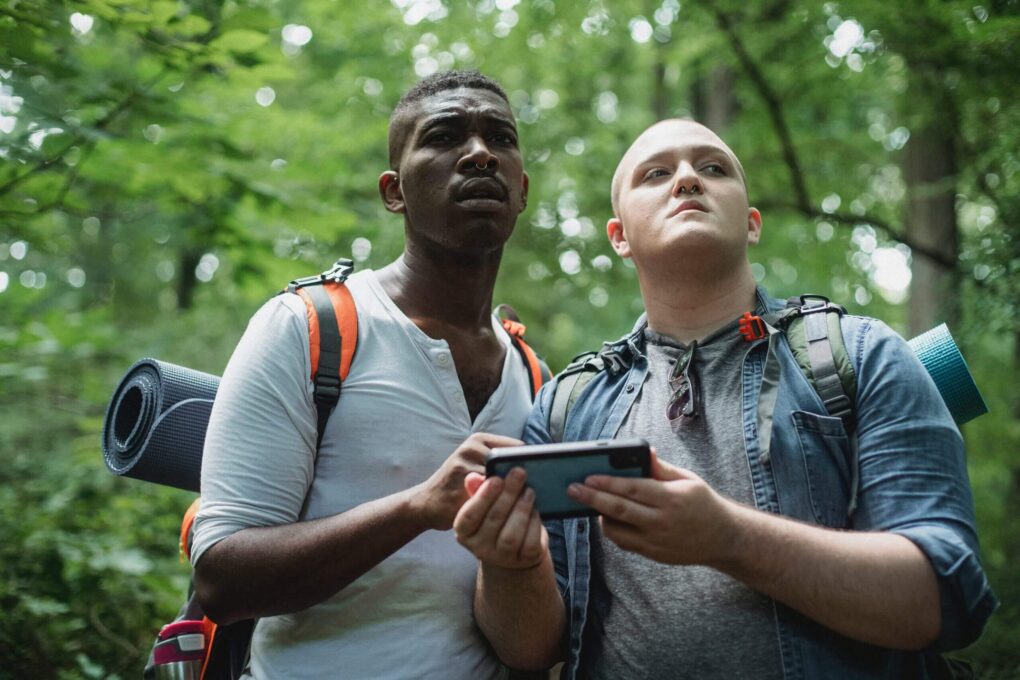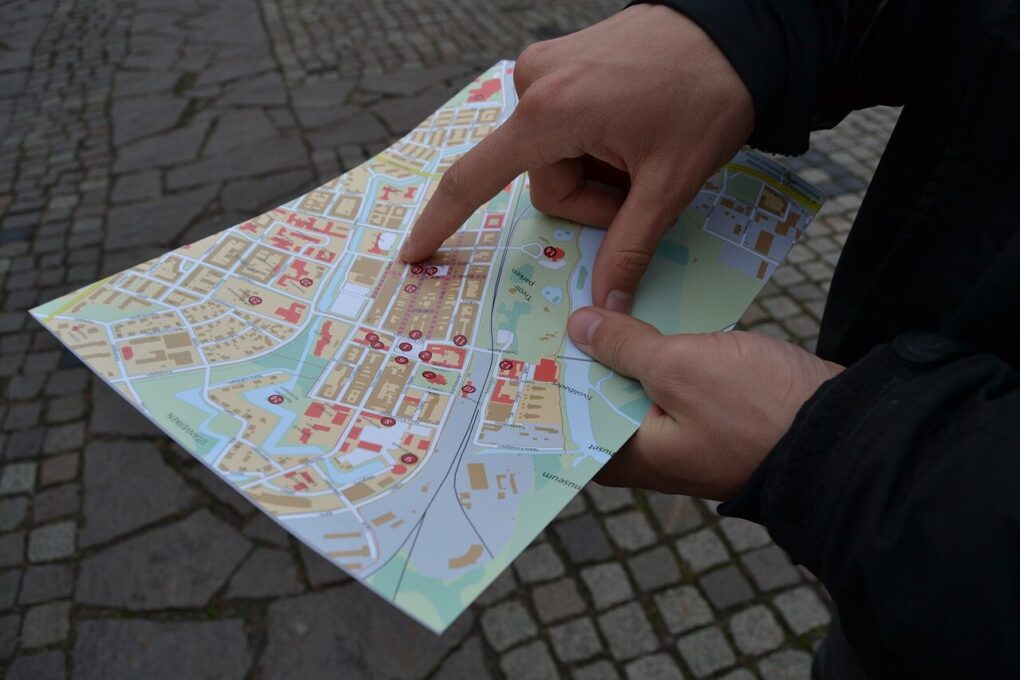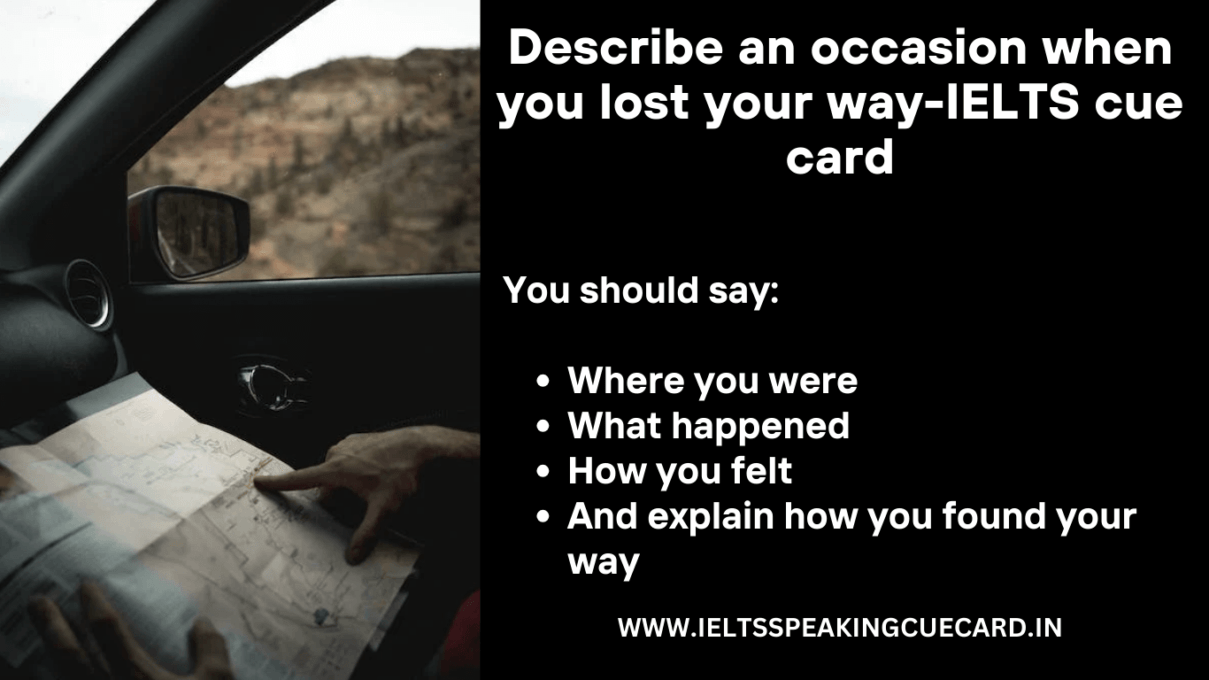Describe an occasion when you lost your way
You should say:
- Where you were
- What happened
- How you felt
- And explain how you found your way
Sample Answer-1

Describe an occasion when you lost your way IELTS CUE CARD
Introduction:
Let me recount an incident that happened to me, an occasion when I lost my way, which turned out to be quite an adventure. It was an unexpected detour from the routine, and it led to a mix of emotions and experiences that I won’t forget.
Where you were:
It happened in a bustling market in the heart of my city. The narrow lanes and vibrant shops created a labyrinth that I found myself navigating without a clear sense of direction.
What happened:
As I was exploring the market, captivated by the variety of goods on display, I took a few turns without realizing how disoriented I was becoming. The bustling crowd, colorful storefronts, and similar-looking alleys added to the confusion.
How you felt:
Initially, there was a sense of curiosity and excitement, thinking it was just a momentary confusion. However, as time passed and the surroundings seemed unfamiliar, a tinge of anxiety crept in. I felt a bit uneasy, realizing that I might be truly lost in the maze of the market.
And explain how you found your way:
Realizing the need to find my bearings, I approached a local vendor and sought help. The vendor, with a friendly smile, guided me back to a familiar intersection, pointing out notable landmarks for future reference. Grateful for the assistance, I retraced my steps and eventually found my way back.
Sample Answer-2

Describe an occasion when you lost your way IELTS CUE CARD
Introduction:
Let me share an incident that left me momentarily disoriented but turned out to be an interesting experience. It was an occasion when I lost my way in a familiar neighborhood, leading to a series of events that highlighted the importance of being aware of our surroundings.
Where you were:
This happened in my own neighborhood, a place I thought I knew like the back of my hand. Little did I expect to find myself in a situation where familiar streets seemed strangely unfamiliar.
What happened:
While taking a shortcut I hadn’t explored before, I lost track of the usual landmarks. The winding lanes and similar-looking houses created a confusing tableau, and before I knew it, I found myself not knowing which way to proceed.
How you felt:
Initially, there was a sense of disbelief, almost comical, as I never imagined getting lost in my own locality. However, as minutes passed without recognizing any landmarks, a mild sense of anxiety crept in. It was like a puzzle with missing pieces, and I couldn’t figure out how to complete it.
And explain how you found your way:
Determined to find my way back, I approached a local shopkeeper and sheepishly admitted my predicament. Surprisingly, the shopkeeper, with a warm smile, not only pointed me in the right direction but also shared a few tips to navigate the maze of lanes. Grateful for the assistance, I followed the guidance and soon found myself on familiar ground.
Follow-up Questions:
1.How do people feel when they get lost?
Getting lost often induces a mix of emotions, ranging from initial curiosity or excitement to eventual feelings of anxiety or unease. It can be a disorienting experience, especially in unfamiliar surroundings.
2.Are some people better at orienting themselves?
Yes, some individuals have a natural ability to orient themselves better in space. This skill may be influenced by factors such as spatial awareness, observational skills, and experience in navigating diverse environments.
3.Are young people more reliant on their phones than older people to find their way?
Generally, yes. Young people often rely more on navigation apps on their phones to find their way, while older individuals may rely on traditional navigation methods or their accumulated knowledge of the surroundings.
4.Are young people gradually losing their ability to orient themselves?
It’s not necessarily a loss of ability but a shift in reliance on technology. While young people may heavily use navigation apps, they can still develop orientation skills through other experiences like travel or exploration.
5.With mobile phones and these electronic products with navigation, is it difficult for people to get lost?
The prevalence of navigation tools has indeed made it easier for people to find their way. However, reliance solely on technology may hinder the development of natural orientation skills, and unexpected situations can still lead to being temporarily lost.
6.What kind of problems do old people have when they get lost?
Older individuals may face challenges due to factors such as memory decline, difficulty reading maps, or a potential lack of familiarity with modern navigation technology. Safety concerns may also be more pronounced.
7.Some people like to walk around without navigation, is there any problem?
Walking around without navigation can be a delightful and adventurous experience, fostering a deeper connection with the surroundings. However, in unfamiliar areas, it’s essential to strike a balance between exploration and ensuring a safe return.
8.How can people find their way when they are lost?
Seeking assistance from locals, using landmarks as reference points, and staying calm are effective ways to find one’s way when lost. Communication and observation play crucial roles in navigating unfamiliar environments.
9.Do you think it is important to do some preparation before you travel to new places?
Absolutely. Doing some preparation, such as researching the destination, understanding local landmarks, and having a basic map, enhances one’s confidence and ability to navigate in new places.
10.Do you think it is important to be able to read a map?
Yes, the ability to read a map remains important. It serves as a valuable skill, especially in situations where digital navigation tools may not be available or reliable.
11.Is a paper map still necessary?
While electronic maps are prevalent, a paper map can be a useful backup, especially in areas with poor connectivity or unexpected device issues. It provides a tangible reference point.
12.Why do some people get lost more easily than others?
Factors such as a lack of spatial awareness, distraction, or unfamiliarity with the environment can contribute to individuals getting lost more easily. However, experience and improved observational skills can mitigate this tendency.
13.How do people react when they get lost?
Reactions vary from person to person. Initially, there might be curiosity or frustration, followed by a desire to seek assistance or find familiar landmarks. Staying calm and seeking help are common reactions.

